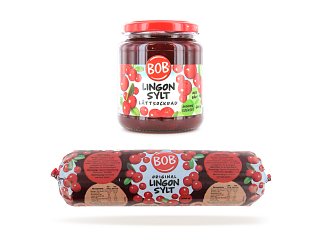Swedes are known for coming up with simple and clever solutions to everyday problems. One of my favourites is what I call the “green sausage” of marmalade and jam.

As we know, glass jam jars are an environmental challenge: they’re energy-intensive to manufacture and they’re heavy to transport to the store, from the store and, finally, on to wherever they are disposed of. This environmental impact could be reduced by switching to lighter hard plastic materials. These packages work well enough, but are less attractive and many consumers are hesitant to eat quality orange marmalade from an orange plastic jar.
The Swedes came up with a deceptively easy solution decades ago: packing marmalade refills in a soft plastic sausage-shaped tube with branding identical to the glass jar. The message is clear: when you finish off your marmalade jar, you simply buy a refill, cut the top off the tube and squeeze the contents into the old jar. It’s easy, environmental and, perhaps most important, the sausage is priced significantly lower than the price of a new jar.
The idea caught on gradually, but today the refill tubes not only take up about a fourth of the marmalade shelves, the idea has also spread to a half dozen other products such as apple sauce and soup.
It’s interesting to note that Swedes have a long history of simple packaging solutions. The Swedish company TetraPak built a world empire on the simplest package of them all, the wax-paper juice and milk pack. Invented in the first half of the 20th century, these packages have become so common that we barely think of what a revolution they were at the time..
The take-away lesson is: in our world of mass-manufactured goods, where companies spend almost as much money on developing sophisticated new packaging as the products themselves, there’s room for sensible and practical solutions to old problems.
The bottom line is the most environmental and high-tech solution, can be both the simplest and the cheapest.

Recent posts
- The value of photography in numbers.
- Paws for thought: why allowing dogs in the office is a good idea.
- Urgo. Novafix PRO 3.
- Fruit Attraction Nufri
- 10 year Anniversary
- The new secret weapon in marketing: Honesty.
- Success Charity "life after cure"
- Nestlé Gold mini cones: an Innoval Award 2016
- What a name says is less important than what it allows you to say
- Nestlé: 150 years young